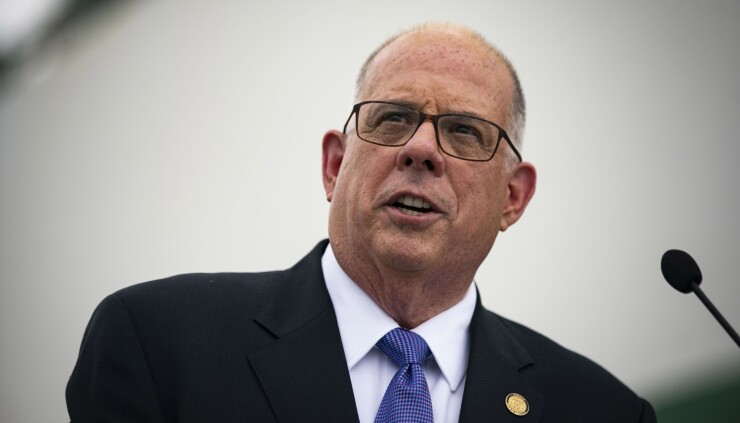A judge last week tapped the brakes on Maryland’s high-profile public-private partnership to build new toll lanes along Interstate 270 and the Capital Beltway amid a dispute from the losing bidder.
If it goes forward, the $9 billion P3 highway project outside Washington, D.C., would be the largest in the world, said Baruch Feigenbaum, senior managing director of transportation policy at Reason Foundation.
“This is the first time that the contract decision of a P3 project has ever been appealed,” Feigenbaum said. “We’re in uncharted territory here. I don’t know what the judge’s ruling means; I don’t know what the appeal will bring. There’s a lot of uncertainty now.”
Montgomery County Circuit Court Judge John M. Maloney ruled Feb. 18 that the Maryland Department of Transportation erred when it rejected as untimely a protest filed by Capital Express Mobility Partners, the losing bidder on the RFP for the project's predevelopment phase.
A consortium led by Spanish firms Cintra and Ferrovial, CEMP has laid out several objections to the state’s decision to award the predevelopment contract to Accelerate Maryland Partners, led by Australian firms Transurban and Macquarie Infrastructure.
Maloney ordered that MDOT, which originally rejected the protest as filed too late, reconsider CEMP’s protest on its merits. He delivered the ruling orally after a Feb. 18 hearing and has not yet released a written opinion.
The project calls for adding four high occupancy toll, or HOT, lanes to I-495/Capital Beltway and I-270. It would link to Virginia’s HOT lanes. The project would be structured as a 50-year design-build-finance-operate-and/or-maintain P3.

It’s a priority project for Gov. Larry Hogan, who is term-limited and wants the plan locked down before he leaves office next January. It’s unclear whether a successor would support the P3, as already some Democratic candidates have expressed opposition.
“The stakes are high for the regional planners" who are pushing for a network of HOT lanes across the two states, Feigenbaum said. Virginia is set to come to market Thursday with $1.1 billion of refunding bonds for its I-495 HOT lanes.
Transurban also
“I think the contractor who lost is very concerned that losing this project will lock them out of the P3 market in the U.S., and they see that market as being very lucrative,” Feigenbaum said. “By appealing this project, and potentially killing it, they could be doing more harm over the long term.”
The judge’s ruling means MDOT will be required to hold a new hearing within 75 days on three of the four issues raised by Capital Express in its protest, including that AMP “gamed the system” with unrealistic financial inputs.
The judge ruled against Capital Express on a fourth issue, which argued that AMP’s bid became less qualified after the lead road contractor left the consortium.
Capital Express is expected to appeal the judge’s ruling on that issue within the next few days.
If after the new hearing, MDOT affirms its original decision rejecting Capital Express’s protest, as many expect, the group is likely to file a fresh lawsuit.
The controversy comes in the wake of
Capital Express is represented by Douglas Gansler of the Cadwalader law firm, who is a former Maryland attorney general and is a Democratic candidate in this year's gubernatorial race. He warned warned last week that the project could turn into “the Purple Line on steroids,” according to a local report.
MDOT in February 2021
Initial financing plans include a Transportation Infrastructure Finance Innovation Act loan, private activity bonds and equity, according to a state Treasurer’s report.
MDOT did not respond to a request for comment.





